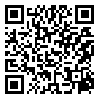Volume 10 -
IJMEHM 2017, 10 - : 231-242 |
Back to browse issues page
Download citation:
BibTeX | RIS | EndNote | Medlars | ProCite | Reference Manager | RefWorks
Send citation to:



BibTeX | RIS | EndNote | Medlars | ProCite | Reference Manager | RefWorks
Send citation to:
Salimi Naveh A, Salimi R, Iesa Zadeh N, Salimi F, Poor Rezagholi M. Ethics in medical education from the perspective of verses and hadiths. IJMEHM 2017; 10 :231-242
URL: http://ijme.tums.ac.ir/article-1-5685-en.html
URL: http://ijme.tums.ac.ir/article-1-5685-en.html
Asghar Salimi Naveh1 
 , Reza Salimi2
, Reza Salimi2 
 , Nikzad Iesa Zadeh *
, Nikzad Iesa Zadeh * 
 3, Fatemeh Salimi4
3, Fatemeh Salimi4 
 , Maryam Poor Rezagholi1
, Maryam Poor Rezagholi1 


 , Reza Salimi2
, Reza Salimi2 
 , Nikzad Iesa Zadeh *
, Nikzad Iesa Zadeh * 
 3, Fatemeh Salimi4
3, Fatemeh Salimi4 
 , Maryam Poor Rezagholi1
, Maryam Poor Rezagholi1 

1- Vali-e Asr University of Rafsanjan,Kerman,Iran
2- Islamic Azad University, Science and Research Branch, Tehran, Iran
3- Tehran University of Medical Sciences, Tehran, Iran
4- Islamic Azad University of Anar, Anar, Kerman, Iran
2- Islamic Azad University, Science and Research Branch, Tehran, Iran
3- Tehran University of Medical Sciences, Tehran, Iran
4- Islamic Azad University of Anar, Anar, Kerman, Iran
Abstract: (5335 Views)
Professional ethics is a part of the ethics of the individual component of each discipline. Whether it is in the field of medicine from the viewpoint of the Qur'an and the traditions, or how this context is discussed, is the focus of this article. With reference to the most important principles of the principles governing the medical education system, we are going to explain these principles. The applied method is descriptive and with a Quranic-narrative approach. In addition to reviewing some verses of the Qur'an, the most important issues were considered as the principles of professional ethics, especially in relation to the medical profession. However, there are also other research projects that can be done. Consideration of the articles and resources that are relevant to this discussion has been considered for further research. In order to investigate the ethical principles governing the relations between students and students in the field of medicine, first, with an interpretive look at each verse, the ethical propositions of the constituent and the contents and orientations of each verse were extracted and then the lead role was included. Also, the concepts, orientations, and leadership role of each verse were extracted. The most important things to note are: 1- Extracting ethical verses based on the study of contemporary interpretations, 2- Extracting the concepts and moral themes expressed in the interpretations, 3- Finding the connection between ethical concepts, 4-Addressing the leadership role of each of the ethical concepts, 5-Categorization of common subjects and subjects of verses.
Type of Study: Review |
Received: 2016/02/8 | Accepted: 2018/02/24 | Published: 2018/03/17
Received: 2016/02/8 | Accepted: 2018/02/24 | Published: 2018/03/17
| Rights and permissions | |
 |
This work is licensed under a Creative Commons Attribution-NonCommercial 4.0 International License. |



